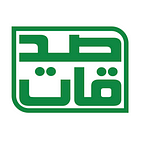8 Differences Between Sadaqah and Zakat
Although Sadaqah is more than just monetary payments, the most common form of Sadaqah is monetary payment. At a first glance, Sadaqah and Zakat are both monetary payments and are very similar in nature.
However, if we look at them closely, there are several differences between Sadaqah and Zakat. The word Sadaqah is derived from the Arabic word Sidq (truth). All actions of righteousness in Islam is considered as Sadaqah. Zakat is derived from Zaka, which means to purify and bless. The key differences between Sadaqah and Zakat are as follows:
- The voluntary form of Sadaqah is never obligatory, it is a highly recommended and encouraged practice on a daily basis for a Muslim. Zakat on the other hand is obligatory once a year if a person qualifies by having more than the Nisab (threshold) after the passage of one year.
- Sadaqah is not paid or calculated on any type of asset. A person can give Sadaqah as much as he wants. Whereas, Zakat is paid on specific assets such as: gold, silver, cash, business assets, agricultural produce, livestock, treasure troves. Zakat’s total value is dependent on the underlying Zakatable assets.
- Sadaqah is not a calculation and therefore, one does not have to consider any debts or liabilities. A Sadaqah payer can pay whatever they wish. However, Zakat is a calculation and a personal assessment whereby there are certain assets to add up and a few liabilities which can be deducted.
- Sadaqah is very much a personal act and gesture of goodwill. Sadaqah payments are not enforced by the Islamic government. This does not mean that there cannot be Sadaqah collectors, of course there can be government facilities and institutions which collect Sadaqah. Whereas, Zakat is generally collected and distributed by an Islamic government.
- By not paying Sadaqah, a person is not sinful. There is no blame or reproach on not giving Sadaqah. On the contrary, abandoning Zakat payments is sinful and an omission of an obligatory action.
- Sadaqah can be paid anywhere in the world. There is no preference in terms of location, one is encouraged to give wherever there is need. However, Zakat has strong encouragement in the Sunnah to distribute it where the Zakat is collected.
- Sadaqah can be given to anybody at any time. There are very few, if any, restrictions on who can receive Sadaqah. However, Zakat can only be paid to specific people.
- There are numerous non-monetary actions which have been regarded as Sadaqah, however, Zakat in essence is only a monetary transfer of value.
About Us
Sadaqah — Ummah Crowdfunding is a global crowdfunding digital platform for the Ummah, to revolutionize the way charitable donations can help in making long lasting social impact. We do that by bringing their stories straight to you.
The concept of Sadaqah crowdfunding platform allows contributions to be made, enabling life changing impact to communities most in need, whom are currently out of reach.
Sadaqah aims to empower, enrich and alleviate the concerns of the world’s most needy and poorest of people by working together as an Ummah to achieve common good.
